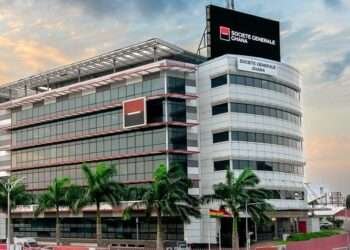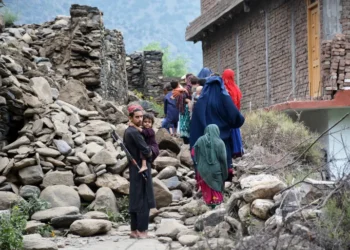The Social Investment Fund (SIF), in partnership with the Ministry of Finance (MoF), ARB Apex Bank, and with financial support from the African Development Bank (AfDB), has successfully completed the disbursement of the microcredit component under the Post COVID-19 Skills Development and Productivity Enhancement Project (PSDPEP).
This marks the conclusion of the second tranche, bringing the total allocation for the initiative to a significant GHS40.8 million.
The disbursement represents a bold step toward empowering micro, small, and medium enterprises (MSMEs) in Ghana, especially those hardest hit by the COVID-19 pandemic. It also underscores the growing importance of structured financial interventions in building resilience, spurring productivity, and sustaining livelihoods across key economic sectors.
Designed with a deliberate focus on inclusivity, the PSDPEP microcredit scheme is tailored to strengthen women and youth-led enterprises that form the backbone of Ghana’s economy. The program provides affordable financing at highly competitive rates, not exceeding 12% per annum, giving entrepreneurs access to capital they would otherwise struggle to secure through conventional channels.
The targeted sectors include Agriculture, Agribusiness, Local Manufacturing, Tourism, Digital and ICT innovation, Catering, and Hospitality industries. These sectors, seen as engines of job creation and growth, are being revitalized with renewed access to affordable credit.
The Role of Rural and Community Banks
A total of 15 Rural and Community Banks (RCBs), alongside Africa Skills Hub, played a pivotal role in disbursing the funds to the final beneficiaries. Institutions such as Akrofuom Area Rural Bank PLC, Akuapem Rural Bank PLC, Amuga Rural Bank PLC, and Ejuraman Rural Bank PLC, among others, ensured that the lifeline reached grassroots entrepreneurs.
The involvement of RCBs is particularly significant, given their proximity to rural and peri-urban communities where financial exclusion remains a challenge. Their commitment and efficiency, as commended by SIF, ensured that entrepreneurs across Ghana had timely access to credit, allowing them to stabilize and expand their businesses.
Monitoring reports from the Social Investment Fund have highlighted encouraging outcomes from the program. Many beneficiaries are recording renewed business growth, increased resilience, and improved financial literacy. Women-led enterprises, in particular, have testified to the impact of the funds in helping them recover from pandemic-related setbacks and scale up operations.
These stories underscore the transformative role of targeted microcredit interventions, proving that access to affordable financing is more than a lifeline—it is a catalyst for sustainable development. By empowering small businesses, the program is enabling communities to create jobs, foster innovation, and strengthen local economies.
Complementary Support Through Africa Skills Hub
Beyond financial disbursements, Africa Skills Hub has played a complementary role by providing training, mentorship, and business partnerships for beneficiaries. This holistic approach ensures that MSMEs not only have access to capital but also the skills and networks required to thrive in competitive markets.
By merging finance with capacity building, the project creates a sustainable model for SME empowerment—one that addresses both financial and technical gaps that often hinder business growth in developing economies.
The successful completion of the second tranche builds on lessons learned during the first phase, which helped streamline the delivery process. According to SIF, this ensured smoother, faster, and more impactful disbursements that directly benefited entrepreneurs without unnecessary delays.
This learning-based approach reflects SIF’s long-term commitment to continuous improvement and accountability in its operations. By tracking outcomes and sharing key insights, the institution seeks to maximize benefits for beneficiaries and partner institutions alike.
The disbursement of GHS40.8 million under the PSDPEP microcredit component marks another step in advancing Ghana’s economic recovery agenda. By focusing on women and youth, the program aligns with the government’s broader strategy of inclusive growth and poverty reduction.
SIF reaffirmed its mission to empower Ghanaian businesses with the resources, knowledge, and opportunities they need to thrive. With early results already showing positive impacts, the initiative demonstrates how targeted financial interventions can accelerate recovery and set MSMEs on a path toward long-term sustainability.
READ ALSO: US Denies Visas For Palestinian Officials Ahead Of UNGA



















